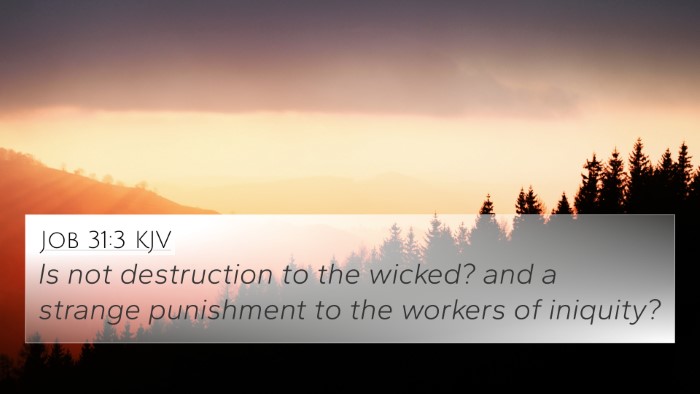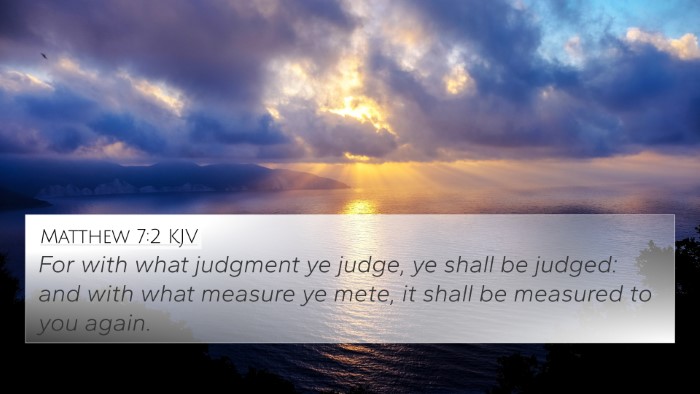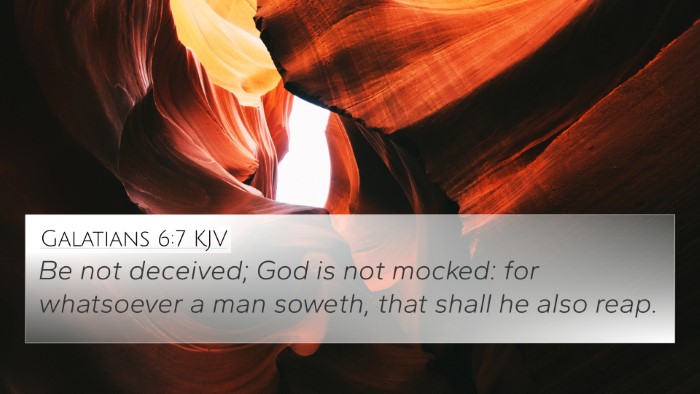Understanding Judges 9:56
Judges 9:56 states: “Thus God rendered the wickedness of Abimelech, which he did unto his father, in slaying his seventy brethren.” This verse concludes the account of Abimelech’s treachery and serves as a reminder that God brings justice upon the wicked.
Overview of Judges 9:56
This passage highlights a profound biblical principle: divine retribution. The actions of Abimelech, who kills his brothers to seize power, ultimately lead to his downfall as a direct consequence of his malevolence. The commentaries by Matthew Henry, Albert Barnes, and Adam Clarke provide deeper insights.
Commentary Insights
Matthew Henry's Commentary
Matthew Henry emphasizes the theme of divine justice, noting that Abimelech's violent actions against his own family resulted not only in immediate consequences but also in God's judgment. Henry remarks how Abimelech's rise to power was marked by bloodshed, which God would not overlook. His demise was a direct result of the wickedness he unleashed, illustrating the biblical truth that "what a man sows, that he will also reap" (Galatians 6:7).
Albert Barnes' Notes
Albert Barnes discusses the implications of this verse regarding the nature of God's justice. He notes that God allowed Abimelech to prosper for a time, but his evil deeds ultimately led to his destruction. Barnes insists that this passage serves to warn that God sees all wickedness and is patient, but justice will eventually prevail against those who commit evil acts.
Adam Clarke's Commentary
Adam Clarke provides contextual analysis, explaining how the narrative reflects upon the intricacies of leadership and the consequences of ambition at the expense of morality. Clarke highlights that Abimelech's ambitions and subsequent betrayal of his family underscore a significant lesson in integrity and accountability. His downfalls serve as a cautionary tale regarding the risks associated with unchecked ambition.
Thematic Bible Verse Connections
Judges 9:56 resonates deeply with various biblical themes and narratives. Here are some cross-references that enhance our understanding:
- Galatians 6:7-8: “For whatever a man sows, that he will also reap.” This verse parallels the theme of retribution found in Judges 9:56.
- 2 Samuel 1:15-16: David shows the consequences of wicked actions, relating to Abimelech's downfall.
- Proverbs 11:5: “The righteousness of the blameless keeps his way straight, but the wicked falls by his own wickedness.”
- Matthew 7:2: "For with what judgment you judge, you will be judged." This connects to the principle of divine justice in Abimelech’s fate.
- Psalm 7:14-16: Describes the fate of the wicked, which echoes the outcome of Abimelech in Judges 9:56.
- Isaiah 3:11: A warning against the wicked reflecting the themes of Abimelech’s actions.
- Revelation 16:6: Links to the idea of just recompense for wicked deeds.
- Romans 2:6: “He will repay each one according to his works,” reinforcing the justice theme.
- Exodus 21:24: “Eye for eye, tooth for tooth,” signifies the standard for justice as seen in Abimelech’s punishment.
- Nahum 1:3: The Lord is slow to anger but has his ways of making the wicked fall.
Applications for Today
The essence of Judges 9:56 is a powerful reminder of personal accountability and the certainty of divine justice. It encourages readers to reflect on their actions and the potential consequences. In our contemporary context, this verse urges us to uphold integrity and righteousness, understanding that, ultimately, justice will be served.
Concluding Thoughts
Judges 9:56 encapsulates the profound truth that while evil may seem to prosper for a time, God’s justice is certain. This passage, supported by various biblical texts and commentaries, serves as a foundational lesson in morality, accountability, and divine retribution. Studying such themes through cross-referencing enhances our understanding of scripture and deepens our insight into God’s will for humanity.













